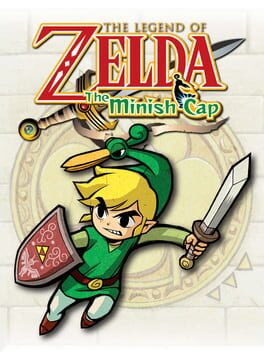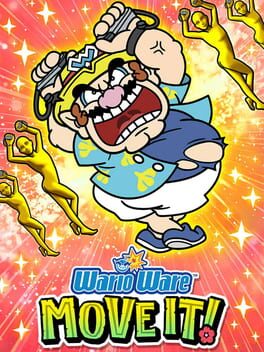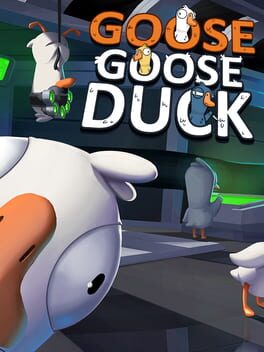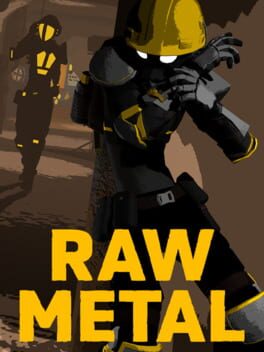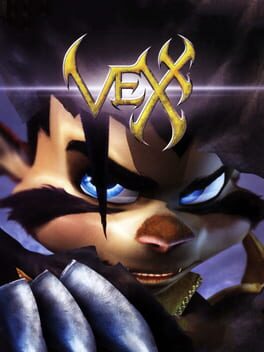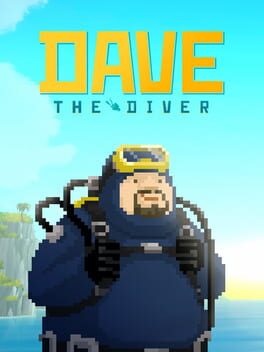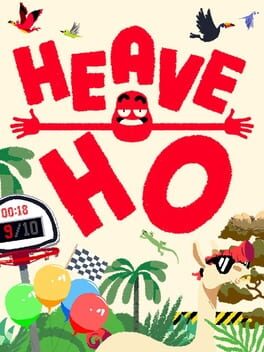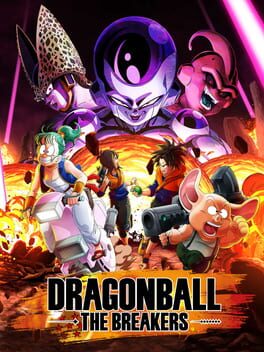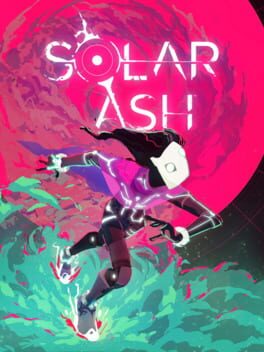HerrDirector
BACKER
2019
I don't envy anyone who has to develop a new installment in a popular, on-going franchise with a passionate fanbase. But I personally believe in the philosophy that "less is more," and in the case of PERSONA 5 ROYAL, Atlus went all in on MORE, to the detriment of a great core concept and strong JRPG gameplay.
Compared to PERSONA 4 GOLDEN, my franchise entry point, P5R offers a longer story, larger cast, actual dungeons with intricate designs, a sizeable overworld, expansive amounts of confidants to befriend, dozens of activities to maximize stats, and an entire RNG mini-dungeon mode for loot grinding. P5R never leaves you bored, but for me, it often left me frustrated at how all this content is so poorly paced or optimized that the size of it all starts to feel less like a wealth of options and instead it feels like bloat.
The chief culprit is the narrative, which shows its best hand in the opening episode and never reaches that height again. The Komishida arc has such high stakes, an intense ethical conflict, and conveys it all through a unique dungeon, that the rest of the game's enemies and heists almost feel tame as a result. It also doesn't help that as the game goes on, it frequently throws up inconsistencies in tone that undercut a lot of the emotion it's so desperately trying to mine.
As this all plods on, the narrative structure gets SUPER tiring. P5R is eager to tell you everything at every moment. The flash-forward cutscenes tell you who the next bad guys are, the visual novel conversation scenes keep reminding you of the stakes and the rules, the CONSTANT in-game text message chains between you and your party keep hammering out the same points over and over. It's no surprise I'm bringing up INCEPTION, which P5R has a lot in common with: Not just its concept of altering one's cognition by invading their minds, but also the fact that the cast never stops dropping exposition, even into the climax of the story.
The turn based combat rules. Baton passing is an ingenious concept. I love the new elemental types and I think there are some fights in here that just go buck-wild once you get a good system of attacks and buffs into a rhythm. The system wherein you "hold up" defeated enemies at gun point to rob them is an ingenious mechanic, and it shows a lot of commitment towards making sure the stylistic and thematic ideas of the game make their way into the gameplay.
On the social simulation side, I enjoyed the new means of buffering your stats: Watching DVDs and reading books to get better skills, being able to work out or meditate to increase HP and SP. The one downside is that the game offers you so many ways to increase your social skills that I never bothered to get a part time job like I had to in P4G. There was no point in my mind: In-Game battles leave you drowning in cash, and playing an NES game will get my kindness up, so why the hell should I serve coffee? TOO MANY SYSTEMS at the expense of others, IMO. Additionally, once certain stats are maxed, activities like Baseball or Fishing just seem fruitless. Wish there had been more incentive to keep going with all of the activities.
There are winners and losers amongst the Confidants and they make the bulk of the side-content worth exploring. But the big anchor around the neck of the side quest system is how a majority of them are tied into Mementos, the RNG overworld mini-dungeon. I truly disliked how you would get text messages about people you've never met having problems, go find the correct RNG floor with the side quest boss, beat it, and then get a text message going "Good job, that person is happy now!" It's so impersonal and boring, despite the game's efforts to add emotional weight to every instance. A more intimate side-quest system where you actually meet the people you're helping would've felt more satisfying.
The amount of critical acclaim P5R gets ultimately puzzles me, but I guess sometimes "more is more." It's certainly one of the most captivating games in terms of design and UI aesthetics; but the ROYAL content feels very shoe-horned in, less like a meaningful extra chapter, and more like an awkward re-do of the first ending (and IMO, the two "endings" going back to back really reveal that they should've just picked one, as Maruki's plan is just the original threat, with extra steps).
I spent 82 hours on this, and I know others have spent hundreds. It's not a bad game, not by a long shot, and for your purchasing value, it's certainly something that will give you your money's worth. But I also think it's a game that's too long and unwieldy for its own good. It’s fitting, considering that the mark of an expert thief is ensuring a mark is so distracted that they never realize they're being robbed.
Compared to PERSONA 4 GOLDEN, my franchise entry point, P5R offers a longer story, larger cast, actual dungeons with intricate designs, a sizeable overworld, expansive amounts of confidants to befriend, dozens of activities to maximize stats, and an entire RNG mini-dungeon mode for loot grinding. P5R never leaves you bored, but for me, it often left me frustrated at how all this content is so poorly paced or optimized that the size of it all starts to feel less like a wealth of options and instead it feels like bloat.
The chief culprit is the narrative, which shows its best hand in the opening episode and never reaches that height again. The Komishida arc has such high stakes, an intense ethical conflict, and conveys it all through a unique dungeon, that the rest of the game's enemies and heists almost feel tame as a result. It also doesn't help that as the game goes on, it frequently throws up inconsistencies in tone that undercut a lot of the emotion it's so desperately trying to mine.
As this all plods on, the narrative structure gets SUPER tiring. P5R is eager to tell you everything at every moment. The flash-forward cutscenes tell you who the next bad guys are, the visual novel conversation scenes keep reminding you of the stakes and the rules, the CONSTANT in-game text message chains between you and your party keep hammering out the same points over and over. It's no surprise I'm bringing up INCEPTION, which P5R has a lot in common with: Not just its concept of altering one's cognition by invading their minds, but also the fact that the cast never stops dropping exposition, even into the climax of the story.
The turn based combat rules. Baton passing is an ingenious concept. I love the new elemental types and I think there are some fights in here that just go buck-wild once you get a good system of attacks and buffs into a rhythm. The system wherein you "hold up" defeated enemies at gun point to rob them is an ingenious mechanic, and it shows a lot of commitment towards making sure the stylistic and thematic ideas of the game make their way into the gameplay.
On the social simulation side, I enjoyed the new means of buffering your stats: Watching DVDs and reading books to get better skills, being able to work out or meditate to increase HP and SP. The one downside is that the game offers you so many ways to increase your social skills that I never bothered to get a part time job like I had to in P4G. There was no point in my mind: In-Game battles leave you drowning in cash, and playing an NES game will get my kindness up, so why the hell should I serve coffee? TOO MANY SYSTEMS at the expense of others, IMO. Additionally, once certain stats are maxed, activities like Baseball or Fishing just seem fruitless. Wish there had been more incentive to keep going with all of the activities.
There are winners and losers amongst the Confidants and they make the bulk of the side-content worth exploring. But the big anchor around the neck of the side quest system is how a majority of them are tied into Mementos, the RNG overworld mini-dungeon. I truly disliked how you would get text messages about people you've never met having problems, go find the correct RNG floor with the side quest boss, beat it, and then get a text message going "Good job, that person is happy now!" It's so impersonal and boring, despite the game's efforts to add emotional weight to every instance. A more intimate side-quest system where you actually meet the people you're helping would've felt more satisfying.
The amount of critical acclaim P5R gets ultimately puzzles me, but I guess sometimes "more is more." It's certainly one of the most captivating games in terms of design and UI aesthetics; but the ROYAL content feels very shoe-horned in, less like a meaningful extra chapter, and more like an awkward re-do of the first ending (and IMO, the two "endings" going back to back really reveal that they should've just picked one, as Maruki's plan is just the original threat, with extra steps).
I spent 82 hours on this, and I know others have spent hundreds. It's not a bad game, not by a long shot, and for your purchasing value, it's certainly something that will give you your money's worth. But I also think it's a game that's too long and unwieldy for its own good. It’s fitting, considering that the mark of an expert thief is ensuring a mark is so distracted that they never realize they're being robbed.
2024
I love, in no particular order: 3rd person shooters, objective control modes, horde modes, co-op with friends, collectathons, strong satirical tone, great atmosphere, orchestral music, and destroying bugs. HELLDIVERS 2 gives me all of these things, in one package, and with such strong design and atmosphere choices, that's it's hard for me to think of the last time a game spoiled me so lavishly.
It sucks that it's basically unplayable as a single-player experience, but with friends this is one of the most fun gaming experiences I've had in some time. My greatest fear is that they'll fuck up the long term rollout of content and this will turn into a graveyard. But for now: LET FREEDOM RING!
It sucks that it's basically unplayable as a single-player experience, but with friends this is one of the most fun gaming experiences I've had in some time. My greatest fear is that they'll fuck up the long term rollout of content and this will turn into a graveyard. But for now: LET FREEDOM RING!
I think this is my favorite implementation of the 2D Zelda formula to date, even if it's a bit easy to complete and short in duration.
Giving Link a Souls-Dodge-Roll and a wide, 180 degree sword swing makes combat a lot more accessible and strategic than LTTP or the other handheld 2D adventures. I got into some tough-ass fights which felt thrilling, especially toward the endgame. The dungeons can vary between "slightly difficult" and "a cakewalk," but the overworld itself has a lot of tricks up its sleeve that encourage you to think critically as you try to get from one plot beat to another.
I was there when the internet went up in arms over "Celda," but I think it's hilarious that not only has the Toon Link visual style prevailed, but that it probably looks the BEST in the 2D top down format. Even under the pixelated constraints of the GBA, this has a wonderfully distinct look that charms and delights.
I regret sleeping on this for as long as I did. A wonderful and pleasant adventure!
Giving Link a Souls-Dodge-Roll and a wide, 180 degree sword swing makes combat a lot more accessible and strategic than LTTP or the other handheld 2D adventures. I got into some tough-ass fights which felt thrilling, especially toward the endgame. The dungeons can vary between "slightly difficult" and "a cakewalk," but the overworld itself has a lot of tricks up its sleeve that encourage you to think critically as you try to get from one plot beat to another.
I was there when the internet went up in arms over "Celda," but I think it's hilarious that not only has the Toon Link visual style prevailed, but that it probably looks the BEST in the 2D top down format. Even under the pixelated constraints of the GBA, this has a wonderfully distinct look that charms and delights.
I regret sleeping on this for as long as I did. A wonderful and pleasant adventure!
2023
“Are we just characters, or the audience?” Co-protagonist Saga Anderson asks this question early into ALAN WAKE 2, as they discover manuscript pages that seem to detail everything she is currently doing. As video game players, every time we pick up a controller, we are both character and audience. It’s the beauty of this interactive medium. But rarely have games gone a step further: To cast us into playing the roles of active avatar, passive viewer, and even within the boundaries of the game’s structure, the “authors” of the world itself.
ALAN WAKE 2 is about authorship. The driving desire to create, to discover, to outline and define the world so that we can make sense of it. Saga seeks to author a solution that will save her family and restores justice to Bright Falls. Alan Wake seeks to author an escape from his dark past and his even bleaker present. The way these character goals manifest in the gameplay are superb. Saga’s Mind Place and the ways you can use this mental refuge to piece together the scope of each ongoing case marries beautifully with Alan’s Writer’s Room and the draft board concept of re-arranging plot points on cards until his “plot” fits together.
We're just over 3 years into this console generation and AW2 feels like a game that couldn't have happened at any moment before solid state drives and other high output hardware. While I was streaming this, I had a viewer legit ask me which part was an FMV and which was gameplay. Not that the game hits that peak all the time, but there are moments when the game can astound in that way. And it's not just the base presentation that dazzles. Alan's ability to transform his environment through Plot Points and his Lamp are so smooth and instantaneous that it always impressed me. Dropping in and out of the Mind Place and the Writer's Room at the push of a button, with all the detail and interactivity they contain, while the actions of the game world are still occuring, is so cool on a technical level. Coupled with the game’s layering of other transmedia elements, and you get something singular in the current gaming landscape.
The game's obvious high point, WE SING, is the ultimate showcase of everything I'm praising. A fully interactive musical retelling of the plot of ALAN WAKE 1, conveyed through a mix of 3rd person action gameplay, gorgeously produced full motion video, and a banger of an original song. And it's all rooted in a strong narrative purpose: The Dark Place taunting Alan as he once again attempts to escape from Cauldron Lake as “the Champion of Light.” But how many times has he failed at this escape loop before? And how many times has he been struck down by “the Herald of Darkness?” It's thrilling, funny, and exciting, and I truly wish it had NOT been adapted into the performance we got at The Game Awards because discovering that moment organically will remain in my gaming memory FOREVER.
OK, time for some salt in this coffee. Remedy continues their annoying trend of making you put the controller down and sit still during a lot of “audio log” content. You're not allowed to listen to manuscript narration or character monologues as you walk. You need to find them, start them, and wait. It's 2023, any game doing this kind of stuff is rude. Segwaying from one type of interaction gripe to another: Bright Falls and it's surroundings are impressively detailed but also a bit empty. This is true for most of Saga’s side of the game. I would've really enjoyed being able to talk to more citizens, go into more locations. I find nothing more annoying in gaming than wasted detail. I'd rather have more purposeful interaction than something that's just pretty to look at, which is what we get far more often on Alan’s side of “reality.”
I think I've elevated this to my GOTY because this is what I want more from the gaming industry: Big, confident swings into the weird and wacky that are rooted in passionate ideas. ALAN WAKE 2 is about both the destructive and redemptive power of creativity, and it feeds that to us through an exceptional amount of unique ideas. “Art is the key to find my way out of the dark place.” You're god damn right it is!
ALAN WAKE 2 is about authorship. The driving desire to create, to discover, to outline and define the world so that we can make sense of it. Saga seeks to author a solution that will save her family and restores justice to Bright Falls. Alan Wake seeks to author an escape from his dark past and his even bleaker present. The way these character goals manifest in the gameplay are superb. Saga’s Mind Place and the ways you can use this mental refuge to piece together the scope of each ongoing case marries beautifully with Alan’s Writer’s Room and the draft board concept of re-arranging plot points on cards until his “plot” fits together.
We're just over 3 years into this console generation and AW2 feels like a game that couldn't have happened at any moment before solid state drives and other high output hardware. While I was streaming this, I had a viewer legit ask me which part was an FMV and which was gameplay. Not that the game hits that peak all the time, but there are moments when the game can astound in that way. And it's not just the base presentation that dazzles. Alan's ability to transform his environment through Plot Points and his Lamp are so smooth and instantaneous that it always impressed me. Dropping in and out of the Mind Place and the Writer's Room at the push of a button, with all the detail and interactivity they contain, while the actions of the game world are still occuring, is so cool on a technical level. Coupled with the game’s layering of other transmedia elements, and you get something singular in the current gaming landscape.
The game's obvious high point, WE SING, is the ultimate showcase of everything I'm praising. A fully interactive musical retelling of the plot of ALAN WAKE 1, conveyed through a mix of 3rd person action gameplay, gorgeously produced full motion video, and a banger of an original song. And it's all rooted in a strong narrative purpose: The Dark Place taunting Alan as he once again attempts to escape from Cauldron Lake as “the Champion of Light.” But how many times has he failed at this escape loop before? And how many times has he been struck down by “the Herald of Darkness?” It's thrilling, funny, and exciting, and I truly wish it had NOT been adapted into the performance we got at The Game Awards because discovering that moment organically will remain in my gaming memory FOREVER.
OK, time for some salt in this coffee. Remedy continues their annoying trend of making you put the controller down and sit still during a lot of “audio log” content. You're not allowed to listen to manuscript narration or character monologues as you walk. You need to find them, start them, and wait. It's 2023, any game doing this kind of stuff is rude. Segwaying from one type of interaction gripe to another: Bright Falls and it's surroundings are impressively detailed but also a bit empty. This is true for most of Saga’s side of the game. I would've really enjoyed being able to talk to more citizens, go into more locations. I find nothing more annoying in gaming than wasted detail. I'd rather have more purposeful interaction than something that's just pretty to look at, which is what we get far more often on Alan’s side of “reality.”
I think I've elevated this to my GOTY because this is what I want more from the gaming industry: Big, confident swings into the weird and wacky that are rooted in passionate ideas. ALAN WAKE 2 is about both the destructive and redemptive power of creativity, and it feeds that to us through an exceptional amount of unique ideas. “Art is the key to find my way out of the dark place.” You're god damn right it is!
2023
Played through the campaign and the Doctor's Orders mini-game with a group of friends. This is some top tier party game wackiness, that only really suffers from some of the rigid specificity required by the Joy Cons. God help you if you don't remember where your wrist strap attachments are.
Very funny and stylish, and nothing ever drags on too long.
Very funny and stylish, and nothing ever drags on too long.
2021
Makes AMONG US look like FORTNITE: IMPOSTERS.
2024
Played the demo at MAGFest 2024. Stealth clearly inspired by MGS1, but the combat reminds me of SIFU. I appreciated how the combat system gives enemies subtle advantages if you keep on spamming the same attacks, encouraging you to switch up styles. The atmosphere and presentation are pretty neat. Looking forward to trying the full game!
2003
Vexx makes Shadow the Hedgehog look like Super Lucky's Tale.
2023
I’m not a FF loyalist, in fact I notoriously have a hard time finishing super-long JRPG’s because I get so invested in the plots that I will frequently barrel-ass my way through a game to experience the narrative, only to hit a wall where I’m under leveled and unable to proceed without starting over and re-grinding. Call that a skill issue, I’ve accepted it. Going into FF16, I assumed the switch from turn-based combat to all out action would be welcoming to me. Holy shit was I wrong.
In a year where HI-FI RUSH reinvigorated the 3D action genre with unique combat gameplay, dolled out at an exciting pace that allowed you to adapt and master it in equal time with the narrative, FF16 holds its combat mechanics hostage, giving you barebone options that take nothing to pull off and feel ineffective against the damage sponge enemies. Even as you unlock new abilities, there’s nothing about them that differentiates combat encounters. No elemental weaknesses across enemy types, no specific strategies for approaching certain mini or main bosses. They all take damage, stagger, and react to parry’s in the same universal manner. There’s no encouragement to experiment because every baddie can be killed the same way: Whack away until they’re dead. And that’s all aside from the fact that you don’t get a 2nd element, wind, or its accompanying upgrades until nearly 6 hours later. 6 HOURS between opportunities to freshen up combat.
I don’t want to undersell that pacing note, because it is brutal. Even if you wanted to try and increase the progression speed, the quest structure of this game is unbearable. Follow markers across linear, empty stretches of overly-detailed-yet-non-interactive maps to talk to an NPC, then repeat the process to go talk to another one. Fight mobs along the way, then repeat. Sucks that you can’t manually sprint between these distances (you have to rely on an auto-run which SOMETIMES works), instead you get to watch Clive trudge along at a half-jog. When you’re not following markers to conversations, you're watching cutscenes that don’t need to be as long as they are. I LOVE CUTSCENES! I make YouTube videos about how great they are! But FF16 has a lot of inconsequential, time-wasting cutscenes. Sometimes you watch a cinematic, walk 20 feet down a narrow route, and then another one starts. My worst offender was a fake-out of a character's death on an underground bridge, for no reason. It’s so much padding, to an end I can’t understand. The narrative is so long and drawn out in its presentation that, again, the fact that you don’t get combat upgrades until you hit story milestones feels rude.
On the obstructive narrative: FF16 wants to be GAME OF THRONES at its best, but instead, it somehow makes GoT Season 8 look competent. You know what’s great about season 1 of that show? The fact that they were able to use the Stark kids to explain complicated world building elements to the audience. It’s a brilliant storytelling tool: Use the uneducated child characters to teach the uneducated audience. FF16 opens with members of 3 different unidentified governments negotiating how to fight the armies of a 4th unidentified government. We then go BACK in time to meet a 5th government with its own set of rituals and family members, all of them talking about impending war, and bloodline betrayal, and destined spiritual awakenings, and none of it has any clear context. These are characters talking about things THEY know, setting up conflict that WE’RE supposed to care enough about that we’ll resolve it through gameplay. Only the conflict reads like you’ve walked in on your nephew watching season 14 of an undubbed, unsubbed anime.
There’s a lot of broad emotional ticks throughout the plot that ring like SOMETHING is happening (Forbidden lovers, doomed men on a mission, children vying for their parents approval), but none of it is clear on a STORY level. Characters talk about things like curses and treaties, and we’re shown cutscenes of battles between nations we haven’t met yet. Context doesn’t start to emerge until a point where you can speak to a Historian in the central hub, who will give you access to reading materials on game lore (but only lore that is concurrent with the time at which you ask to see it). Who wants to stop their fast paced action combat to read wiki entries that explain a plot because the game won’t? WHO?! Show yourself!
Once the game does start to come into focus, dozens of hours later, its world emerges as so shoddily constructed that it confused me all over again. FF16’s commentary on the serious subject of slavery is paper-thin, and the logic behind how the slavery works within the socioeconomic structure of Valesthia makes very little sense. The fact that this world only exists at a level of pre-industrialized medieval fantasy despite the fact that its ruling class are subjugating magic users, The Bearers, in place of technology shows a lack of imagination. Conversely, the fact that the enslaved Bearers can wield magic (and in some cases, become gods) but don’t fight back because they seemingly never thought about it/they don’t want to rock the boat, reveals a complete lack of interest in saying something meaningful about the systems in which slavery exists. It’s just a mess
The game has 2 play options: “Action Focused” and “Story Focused.” I started this on what sounded like “Normal Mode” (Action), and held true for about 10 hours. Eventually I got tired of how simplistic the combat was, and figured the only way I was going to unlock more combat options was to speed up the plot. So I switched to story mode, threw on every auto-fighting mechanic the game had to offer, and found that the enemies STILL took forever to kill and the story STILL refused to shape itself into something cohesive. Time jumps! Major character arcs happening off screen! The best character in the game dies!
And then I just tapped out. Life is too short.
I usually can’t beat JRPG’s because I’m so eager to enjoy the story that I slack on the gameplay progression. Here, the gameplay and story slack so hard in their delivery that I was eager to stop. Shame.
(SPOILER: For real, how did the empire of Sanbreque not instantly fall into the hands of its magic using Bearers once its Mothercrystal was destroyed? Without the ability to use magic by proxy of crystal shards, how is that nation even still standing? The game doesn’t confront this possibility, it just skips ahead 5 years so we’ll forget about the fallout of such an action).
In a year where HI-FI RUSH reinvigorated the 3D action genre with unique combat gameplay, dolled out at an exciting pace that allowed you to adapt and master it in equal time with the narrative, FF16 holds its combat mechanics hostage, giving you barebone options that take nothing to pull off and feel ineffective against the damage sponge enemies. Even as you unlock new abilities, there’s nothing about them that differentiates combat encounters. No elemental weaknesses across enemy types, no specific strategies for approaching certain mini or main bosses. They all take damage, stagger, and react to parry’s in the same universal manner. There’s no encouragement to experiment because every baddie can be killed the same way: Whack away until they’re dead. And that’s all aside from the fact that you don’t get a 2nd element, wind, or its accompanying upgrades until nearly 6 hours later. 6 HOURS between opportunities to freshen up combat.
I don’t want to undersell that pacing note, because it is brutal. Even if you wanted to try and increase the progression speed, the quest structure of this game is unbearable. Follow markers across linear, empty stretches of overly-detailed-yet-non-interactive maps to talk to an NPC, then repeat the process to go talk to another one. Fight mobs along the way, then repeat. Sucks that you can’t manually sprint between these distances (you have to rely on an auto-run which SOMETIMES works), instead you get to watch Clive trudge along at a half-jog. When you’re not following markers to conversations, you're watching cutscenes that don’t need to be as long as they are. I LOVE CUTSCENES! I make YouTube videos about how great they are! But FF16 has a lot of inconsequential, time-wasting cutscenes. Sometimes you watch a cinematic, walk 20 feet down a narrow route, and then another one starts. My worst offender was a fake-out of a character's death on an underground bridge, for no reason. It’s so much padding, to an end I can’t understand. The narrative is so long and drawn out in its presentation that, again, the fact that you don’t get combat upgrades until you hit story milestones feels rude.
On the obstructive narrative: FF16 wants to be GAME OF THRONES at its best, but instead, it somehow makes GoT Season 8 look competent. You know what’s great about season 1 of that show? The fact that they were able to use the Stark kids to explain complicated world building elements to the audience. It’s a brilliant storytelling tool: Use the uneducated child characters to teach the uneducated audience. FF16 opens with members of 3 different unidentified governments negotiating how to fight the armies of a 4th unidentified government. We then go BACK in time to meet a 5th government with its own set of rituals and family members, all of them talking about impending war, and bloodline betrayal, and destined spiritual awakenings, and none of it has any clear context. These are characters talking about things THEY know, setting up conflict that WE’RE supposed to care enough about that we’ll resolve it through gameplay. Only the conflict reads like you’ve walked in on your nephew watching season 14 of an undubbed, unsubbed anime.
There’s a lot of broad emotional ticks throughout the plot that ring like SOMETHING is happening (Forbidden lovers, doomed men on a mission, children vying for their parents approval), but none of it is clear on a STORY level. Characters talk about things like curses and treaties, and we’re shown cutscenes of battles between nations we haven’t met yet. Context doesn’t start to emerge until a point where you can speak to a Historian in the central hub, who will give you access to reading materials on game lore (but only lore that is concurrent with the time at which you ask to see it). Who wants to stop their fast paced action combat to read wiki entries that explain a plot because the game won’t? WHO?! Show yourself!
Once the game does start to come into focus, dozens of hours later, its world emerges as so shoddily constructed that it confused me all over again. FF16’s commentary on the serious subject of slavery is paper-thin, and the logic behind how the slavery works within the socioeconomic structure of Valesthia makes very little sense. The fact that this world only exists at a level of pre-industrialized medieval fantasy despite the fact that its ruling class are subjugating magic users, The Bearers, in place of technology shows a lack of imagination. Conversely, the fact that the enslaved Bearers can wield magic (and in some cases, become gods) but don’t fight back because they seemingly never thought about it/they don’t want to rock the boat, reveals a complete lack of interest in saying something meaningful about the systems in which slavery exists. It’s just a mess
The game has 2 play options: “Action Focused” and “Story Focused.” I started this on what sounded like “Normal Mode” (Action), and held true for about 10 hours. Eventually I got tired of how simplistic the combat was, and figured the only way I was going to unlock more combat options was to speed up the plot. So I switched to story mode, threw on every auto-fighting mechanic the game had to offer, and found that the enemies STILL took forever to kill and the story STILL refused to shape itself into something cohesive. Time jumps! Major character arcs happening off screen! The best character in the game dies!
And then I just tapped out. Life is too short.
I usually can’t beat JRPG’s because I’m so eager to enjoy the story that I slack on the gameplay progression. Here, the gameplay and story slack so hard in their delivery that I was eager to stop. Shame.
(SPOILER: For real, how did the empire of Sanbreque not instantly fall into the hands of its magic using Bearers once its Mothercrystal was destroyed? Without the ability to use magic by proxy of crystal shards, how is that nation even still standing? The game doesn’t confront this possibility, it just skips ahead 5 years so we’ll forget about the fallout of such an action).
2022
Started this with a lot of interest, but quickly found DAVE THE DIVER to be shallow. The gameplay loop is honestly pretty inconsequential, because the game keeps offering you plenty of opportunities to just NOT play it.
Why manage your sushi restaurant when you can just hire more chefs and waiters to do it for you? Why catch fish to stock up your kitchen when you're given a fish-farming option very early in the game? Why grind for upgrades when money is shoveled down your throat so quick and so early, that diving loses most of its danger?
And on top of all that, the game just feels very un-focused. Aside from being a rougelike-collectathon-management sim with 2D combat elements, you're always being introduced to some sub-mechanic or chore system that the titular David will take on with an annoyed attitude that quickly spread to me. Part of the reason I play video games is for escapism, so it's darkly comical how much time I spent on Dave's smartphone, pouring through apps and notifications, instead of my own.
Going back to the concept of Dave getting annoyed a lot - The unspoken premise of this game is: A meek but well meaning man walks away from a tropical vacation to work 2 separate full-time jobs for "friends" who really don't seem to like Dave, all while dozens of strangers pile favor after favor, request after request on Dave's plate. Go back to the island, Dave. You had it right the first time.
Why manage your sushi restaurant when you can just hire more chefs and waiters to do it for you? Why catch fish to stock up your kitchen when you're given a fish-farming option very early in the game? Why grind for upgrades when money is shoveled down your throat so quick and so early, that diving loses most of its danger?
And on top of all that, the game just feels very un-focused. Aside from being a rougelike-collectathon-management sim with 2D combat elements, you're always being introduced to some sub-mechanic or chore system that the titular David will take on with an annoyed attitude that quickly spread to me. Part of the reason I play video games is for escapism, so it's darkly comical how much time I spent on Dave's smartphone, pouring through apps and notifications, instead of my own.
Going back to the concept of Dave getting annoyed a lot - The unspoken premise of this game is: A meek but well meaning man walks away from a tropical vacation to work 2 separate full-time jobs for "friends" who really don't seem to like Dave, all while dozens of strangers pile favor after favor, request after request on Dave's plate. Go back to the island, Dave. You had it right the first time.
Does a lot to improve on the original without tinkering too much with the formula. Web wings change the entire traversal dynamic, allowing you to scope out the city at greater heights and speed. They also smartly approached the world with a BOTW mentality of having activities and objectives open up through exploration rather than following map icons, Ubisoft style. Street level interaction gets sadly diminished as a trade off. You can still walk around and high five citizens. But you can't take the subway, theres no newspapers to find, and citizens don't tip you off to crimes anymore. Not as friendly or as neighborly of a Spider-Man this time.
Combat is the same, for better and for worse. I appreciated the escalating skill sets becoming more and more OP as the game goes along, because at least with the mob battles increasing in size, I had options to end things faster. The new bird/beast enemies are probably the best addition, as they add a tactical element, turning off your gadgets and abilities until you handle them. Combat forms the spine of almost all the side activities, and it gets kind of stale after awhile. The first Mysterio activity had me excited that this might include a rhythm minigame, but they quickly throw that away for more beat-em-up's. Disappointed.
Mary Jane's back, and it still kills the flow. BUT, there are fewer instances of her stealth sections, they're short, and the later occurrences drip with so much horror themed atmosphere that you can trick yourself into thinking you're playing a lite RE game.
Story and set pieces are where it's at, and Insoniac delivered something spectacular here. Probably the best take on Venom ever? Scary yet also holding great emotional stakes for Peter. Miles's quest for revenge against Mr. Negative hits some powerfully authentic highs, and Kraven is a fantastic force of selfish chaos, pushing NYC towards calamity as he seeks his own myopic destiny. Even a lot of the side quests are amazing, with one in particular almost brining me to tears. IYKYK.
"Balance isn't the destination, it's a process." Insomniac mostly follows the advice of its own script, delivering a game that strives to be an accessible blockbuster adventure, overall doing enough right to be seen as superior to SM1/SMMM. The inevitable 3rd game is gonna have to deliver the best comic book adaptation ever, or reinvent the wheel on a lot of mechanics, because I don't know if more of the same will cut it next time.
Combat is the same, for better and for worse. I appreciated the escalating skill sets becoming more and more OP as the game goes along, because at least with the mob battles increasing in size, I had options to end things faster. The new bird/beast enemies are probably the best addition, as they add a tactical element, turning off your gadgets and abilities until you handle them. Combat forms the spine of almost all the side activities, and it gets kind of stale after awhile. The first Mysterio activity had me excited that this might include a rhythm minigame, but they quickly throw that away for more beat-em-up's. Disappointed.
Mary Jane's back, and it still kills the flow. BUT, there are fewer instances of her stealth sections, they're short, and the later occurrences drip with so much horror themed atmosphere that you can trick yourself into thinking you're playing a lite RE game.
Story and set pieces are where it's at, and Insoniac delivered something spectacular here. Probably the best take on Venom ever? Scary yet also holding great emotional stakes for Peter. Miles's quest for revenge against Mr. Negative hits some powerfully authentic highs, and Kraven is a fantastic force of selfish chaos, pushing NYC towards calamity as he seeks his own myopic destiny. Even a lot of the side quests are amazing, with one in particular almost brining me to tears. IYKYK.
"Balance isn't the destination, it's a process." Insomniac mostly follows the advice of its own script, delivering a game that strives to be an accessible blockbuster adventure, overall doing enough right to be seen as superior to SM1/SMMM. The inevitable 3rd game is gonna have to deliver the best comic book adaptation ever, or reinvent the wheel on a lot of mechanics, because I don't know if more of the same will cut it next time.
2019
I've played this a LOT since being introduced to it in 2021. At parties, at conventions, heck even at my wedding reception. This is one of the purest local multiplayer experiences you can have: Simple mechanics, clear goal, and a wacky atmosphere to experience it all in. It brings out a lot of laughs and high energy in people whenever I've seen it played, and I think that's something any multiplayer game should strive for.
>Install free PS+ Game
> Witness the rigid, plasticy character models of the opening animatics, and wonder how the same publisher that gave us the sublimely animated Xenoverse and FighterZ games could produce something that looks this cheap. Even the voice actors sound like they don't care.
> Get into the matches and it's like Great Value Fortnite. Ugly levels, uninteresting survival gameplay. You're picking up so much shit, and it's never clear what every item's purpose is. Why weren't soda cans in the tutorial? Or Dragon Balls? These seem too important to have to learn on the fly!
> Get all 7 Dragon Balls, summon Shenron, get boring wish options. Then the game crashes after Shenron leaves.
> Uninstall free PS+ game.
> Witness the rigid, plasticy character models of the opening animatics, and wonder how the same publisher that gave us the sublimely animated Xenoverse and FighterZ games could produce something that looks this cheap. Even the voice actors sound like they don't care.
> Get into the matches and it's like Great Value Fortnite. Ugly levels, uninteresting survival gameplay. You're picking up so much shit, and it's never clear what every item's purpose is. Why weren't soda cans in the tutorial? Or Dragon Balls? These seem too important to have to learn on the fly!
> Get all 7 Dragon Balls, summon Shenron, get boring wish options. Then the game crashes after Shenron leaves.
> Uninstall free PS+ game.
2021
A principle of Mindfullness is the concept that we cannot cure what has happened to us, we can only learn to heal from our past, and move onward.
SOLAR ASH packs a pretty predictable yet emotionally satisfying story of desperation and forgiveness into a fast paced 3D platformer. A story of slowly learning to heal. The movement mechanics are wonderful from the get go, each system building until you're speeding up the torso's of giant monsters, navigating the SUPER MARIO GALAXY-esque gravity system to pull off perfect attack chains.
When you're on the games wavelength, you truly can get lost in the experience. However, there are a handful of hiccups that break immersion. You'll inevitably hit a point where the speed and precision you're attempting to pull off will push the game engine too far. I got knocked into the interior of a building model while fighting some enemies and had to reset to get out. It's still respectable that the game pulls off so many unique layers at once. Probably could've had more enemy variety (once you hit the second section of the map you've seen all the baddie varieties).
A short but spectacular little adventure that will hook you with its traversal mechanics, and should keep you engaged through its uplifting finale. A real hidden gem.
SOLAR ASH packs a pretty predictable yet emotionally satisfying story of desperation and forgiveness into a fast paced 3D platformer. A story of slowly learning to heal. The movement mechanics are wonderful from the get go, each system building until you're speeding up the torso's of giant monsters, navigating the SUPER MARIO GALAXY-esque gravity system to pull off perfect attack chains.
When you're on the games wavelength, you truly can get lost in the experience. However, there are a handful of hiccups that break immersion. You'll inevitably hit a point where the speed and precision you're attempting to pull off will push the game engine too far. I got knocked into the interior of a building model while fighting some enemies and had to reset to get out. It's still respectable that the game pulls off so many unique layers at once. Probably could've had more enemy variety (once you hit the second section of the map you've seen all the baddie varieties).
A short but spectacular little adventure that will hook you with its traversal mechanics, and should keep you engaged through its uplifting finale. A real hidden gem.
2023
Not since the first PORTAL have I seen a puzzle game so masterfully mix unique mechanics, a one-of-a-kind atmosphere, a steady-yet-unspoken learning curve, and a deliberately measured length into something as efficiently exhilarating at COCOON. It's a shame that, for me, this game has a bit of an anticlimactic ending. There's no real final test of all your abilities, no culmination of everything the finale has been building towards. You just solve one last logic puzzle and then the game ends.
Doesn't change the fact that this is one of the most thrilling releases of the year. Purple Boss may also be one of my favorite boss fights ever. COCOON demands to be experienced.
Doesn't change the fact that this is one of the most thrilling releases of the year. Purple Boss may also be one of my favorite boss fights ever. COCOON demands to be experienced.


